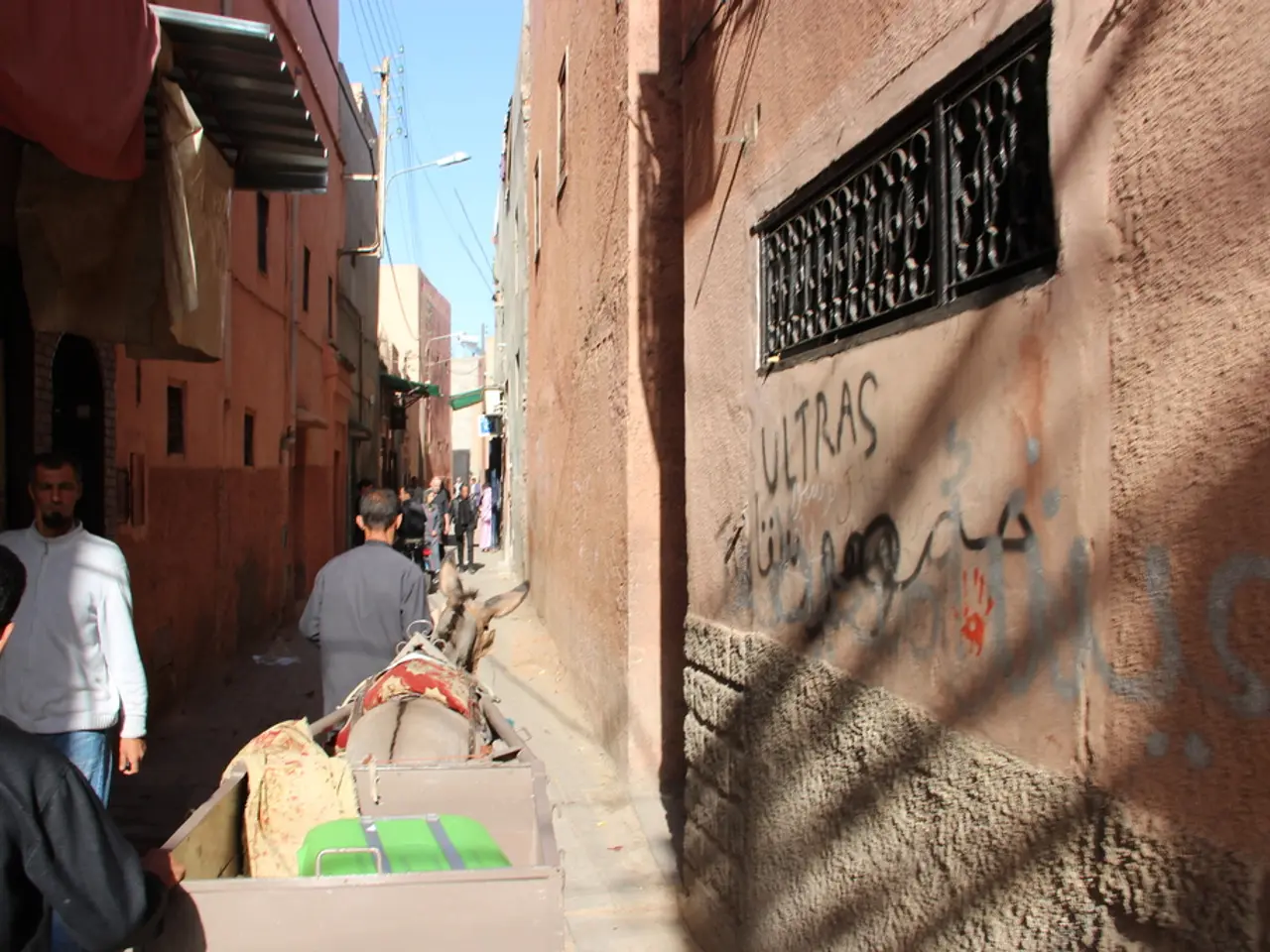"Despair Spreading among Medical Professionals and Humanitarian Workers: Insights from Gaza Amidst Ongoing Food Shortage Crisis"
Hunger Crisis Worsens in Gaza Amidst Ongoing Israel-Hamas Conflict
The hunger crisis in Gaza continues to escalate, with malnutrition, starvation deaths, and blocked humanitarian aid on the rise. According to recent reports from July 2025:
Statistics
- Malnutrition-related deaths in Gaza have increased sharply, with 74 deaths recorded in 2025 alone, 63 of which occurred in July. Among these deaths, 24 were children under five. Nearly 20% of children under five in Gaza City are now acutely malnourished, and severe acute malnutrition rates have tripled since June. Thousands of children are receiving treatment for malnutrition each month. Starvation deaths have reached 147 since the conflict began, with 88 of these being children, and 14 deaths reported in the last 24 hours.
Causes
- The primary causes of the hunger crisis include an ongoing blockade and deliberate restrictions on the entry of large-scale food, fuel, and humanitarian aid by Israel since October 2023. This has severely limited access to essential supplies, leading to interrupted aid flows, deteriorating living conditions, and widespread food insecurity. Aid deliveries have been sporadic and under strict Israeli control, with ongoing allegations of ineffectiveness.
International Response
- Several international actors, including the UN, humanitarian organizations, and countries like the United States, have pressured for greater aid access. Israel announced a “tactical pause” in some military operations and opened humanitarian corridors to allow UN and aid convoys into Gaza starting late July 2025. However, the aid operation remains heavily constrained, with ongoing allegations by Israel that Hamas diverts aid resources. Meanwhile, humanitarian workers on the ground report exhaustion and hunger due to insufficient aid access.
On the Ground
- Emergency departments of hospitals in Gaza have been overwhelmed with injuries since the war began, but over the last two weeks, they have also been overwhelmed with people reportedly injured while trying to get aid, along with people collapsing from hunger. Abdulwhhab Abu Alamrain, a volunteer at Al-Aqsa Martyrs Hospital in central Gaza, stated that there are only four stabilization centers for malnutrition in Gaza, and the admission capacity is severely limited due to overcrowding.
- Alamrain's family, like many others, has struggled to find food. They baked their last 0.5 kilograms (1 pound) of flour to make seven pieces of bread. Although his family has money to spend, the markets have run out of food. Dr. Zaher Sahloul, president of MedGlobal, reported that 19 children have recently been admitted to their clinics in Gaza suffering from severe acute malnutrition, a number the organization has never seen.
Political Stance
- The Israeli government denies limiting the amount of aid entering Gaza, claiming that Hamas steals aid meant for civilians. Hamas denies these claims. David Mencer, a government spokesperson, stated that there is "no famine caused by Israel," but a "man-made shortage" engineered by Hamas. Kate Phillips-Barasso, vice president of global policy and advocacy at Mercy Corps, stated that many people in Gaza are going days at a time without eating.
In summary, Gaza faces a dire and largely preventable hunger crisis driven by blockade policies and conflict-related disruptions, with thousands of vulnerable children and adults suffering acute malnutrition and starvation. International efforts to ease these conditions continue but face significant operational and political challenges.
- Despite ongoing international pressure, the worsening hunger crisis in Gaza continues to be fueled by blockade policies and conflict-related disruptions, affecting thousands of children and adults.
- The critical need for essential supplies, including nutritious food, has gone unmet due to deliberate restrictions on large-scale food, fuel, and humanitarian aid by Israel, leading to widespread food insecurity and malnutrition.
- Mental health among Gaza's population is suffering as well, with reports of exhaustion and hunger among humanitarian workers on the ground, coupled with the trauma experienced by children and families facing starvation.
- The ongoing Israel-Hamas conflict's impact extends beyond war and conflicts, creating a health-and-wellness crisis in Gaza that urgently requires comprehensive political intervention for a sustainable resolution, with fitness-and-exercise, crime-and-justice, and general-news implications for global peace and human rights.




